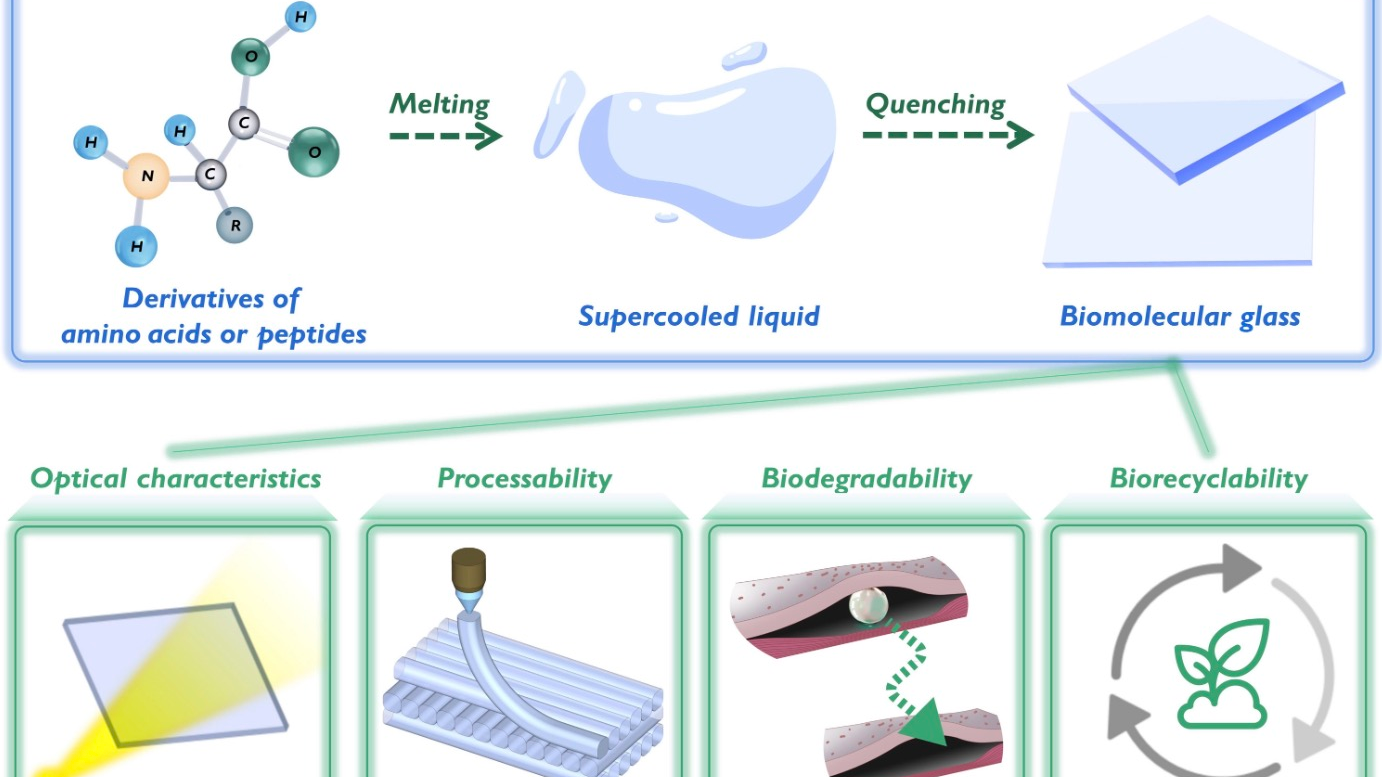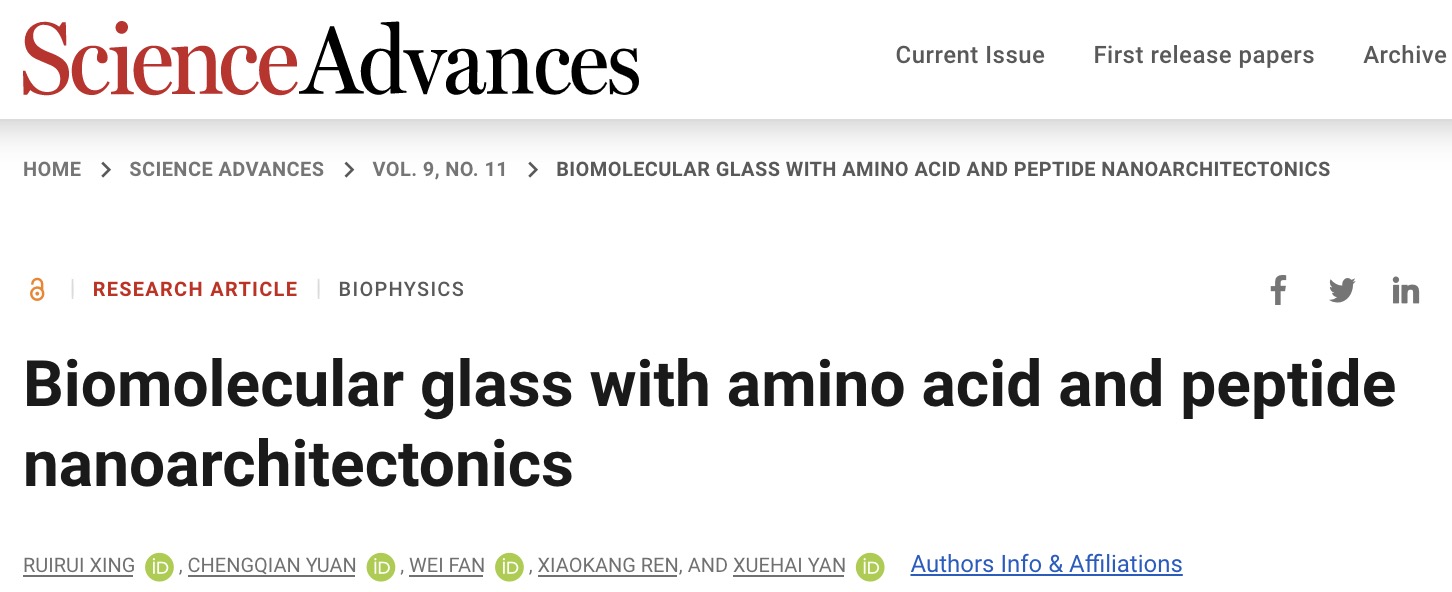
A schematic diagram of the biomolecular glass from the study published in the journal Science Advances. /Institute of Process Engineering under the Chinese Academy of Sciences
A schematic diagram of the biomolecular glass from the study published in the journal Science Advances. /Institute of Process Engineering under the Chinese Academy of Sciences
A group of Chinese material scientists have created a biodegradable and recyclable form of glass with a minimal environmental footprint, which may contribute to the sustainable economy if commercialized in the future.
The researchers from the Institute of Process Engineering under the Chinese Academy of Sciences fabricated a family of eco-friendly glasses of biological origin, using biologically-derived amino acids or peptides through heating-quenching, a classic industrial procedure.
The work is practicable since they chemically modified these amino acids and peptides at their ends so they form a super-cooled liquid before decomposition, according to the study published on Saturday in the journal Science Advances.

A screenshot of the study published in the journal Science Advances.
A screenshot of the study published in the journal Science Advances.
Glass is essential to human life, but the widespread use of non-biodegradable glass that cannot be naturally eliminated causes long-term environmental hazards.
The major challenge of manufacturing glass of biological origin is that its molecules are thermally unstable and tend to decompose easily at high temperatures.
This family of glasses fabricated by Chinese researchers exhibits good glass-forming abilities and optical characteristics, and these glasses are amenable to three-dimensional-printed additive manufacturing and mold casting.
The concept of biomolecular glass, though still in the lab stage, may represent a green-life technology for a sustainable future, said the researchers.
(With input from Xinhua)